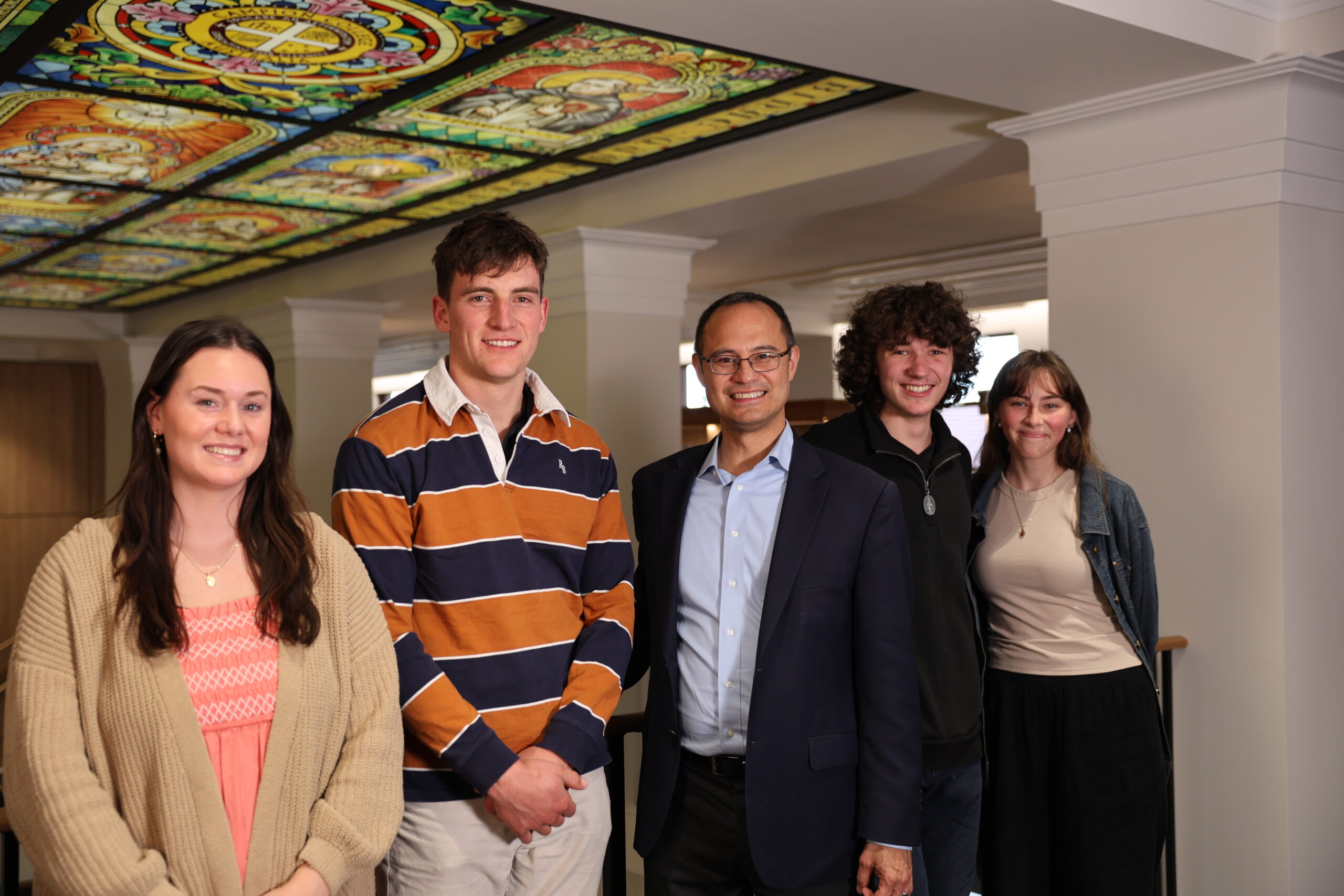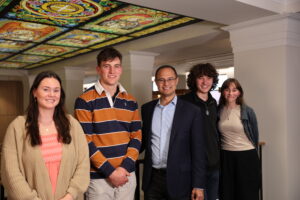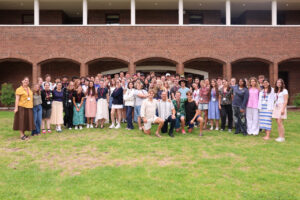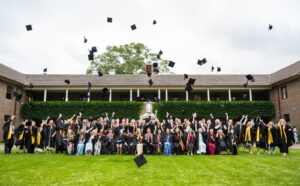From Kayaking to Courtship: Dr Edward Sri’s Lessons for Campion Students


Internationally renowned Catholic theologian, author and speaker Dr Edward Sri visited Campion College last Friday, addressing students with a talk on love and relationships.
Opening with humour, Dr Sri shared a story about a kayaking mishap in the Colorado Rockies, which he used as a metaphor for the pressures young people face in modern culture. “If you’ve ever had an experience like this, it’s really hard to stand up against the current of a powerful river,” he explained. “The same is true in living in our culture… especially in the way we live relationships, the way we live dating, the way we prepare for marriage.”
Dr Sri reflected on the state of marriage today, urging students to think beyond the well-known statistic that half of all marriages end in divorce. “What I want to talk about is what I like to call the other 50%. How are those marriages doing? The ones that actually stay together? Are those happy marriages? Are those marriages that are thriving?” he asked. Citing research, he noted that only around 12 per cent of couples who stay married report true emotional intimacy. “A great marriage isn’t simply one that stays together. It’s one in which husband and wife can look each other in the eye 10, 20, 30 years into their marriage and say, ‘I love you more today than I did when we were first married.’”
Much of Dr Sri’s talk drew on the insights of St John Paul II’s Love and Responsibility, which he described as a practical guide for relationships. He emphasised what the saint called the “personalist principle” and cautioned against utilitarianism in friendships and dating.
In an engaging Q&A session, he addressed the pressures Catholic young people can feel around dating, particularly the fear of making mistakes or not being “perfect” in relationships. “A date is just a date. It is not marriage. It is not a lifelong commitment, and there shouldn’t be so much pressure,” he advised.
Concluding with prayer, Dr Sri encouraged students to entrust their desires and relationships to God, to grow in virtue, and to build habits now that will strengthen their future vocations.



